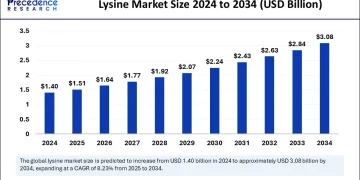When you walk into a casino or place a bet online, it often feels like luck is the driving force behind every win or loss. However, beneath the surface of all those games of chance lies a complex relationship with randomness and probability. Understanding this mathematical perspective can give you an edge in making smarter decisions and more informed bets.
In this article, we’ll explore the role of randomness in gambling and how mathematical principles explain its effects. By understanding how randomness influences your odds, you can improve your approach to betting.
To start your journey with a data-driven approach, Login to Lotus365 and put these insights into practice.
What is Randomness in Gambling?
Randomness refers to the unpredictable nature of events. In gambling, randomness dictates the outcome of games, such as the roll of a die, the shuffle of cards, or the spin of a roulette wheel. At its core, randomness means that there is no way to predict the exact outcome of each event in the short term.
For example, when you play a game of roulette, the spin of the wheel is considered random, with each number having an equal chance of being selected. Similarly, when you play a slot machine, the outcome is determined by a random number generator (RNG), which ensures fairness by generating unpredictable results every time you pull the lever or press a button.
Contact Us if you have any questions about how randomness works in the games we offer!
The Mathematical Model Behind Randomness
While the outcomes of gambling events are random, the probability of certain events happening is not. Mathematically, randomness is modeled through probability theory. This branch of mathematics helps us understand and quantify the likelihood of different outcomes, even in random systems.
For instance, in a game of roulette, there are 37 possible outcomes in European roulette (1-36 and a single zero), so the probability of landing on a particular number is 1 in 37, or about 2.7%. In the case of a fair coin toss, the probability of landing heads or tails is 50%.
Understanding these probabilities is crucial because they allow you to make more informed decisions when placing bets. Even though each individual outcome is random, knowing the odds can help you assess the long-term fairness of the game.
The Law of Large Numbers: Why Randomness Evens Out Over Time
One important mathematical principle related to randomness is the Law of Large Numbers. This law states that as the number of trials in a random event increases, the average result will get closer and closer to the expected value.
For example, if you toss a fair coin 10 times, you may get heads 7 times and tails 3 times. However, if you toss the coin 1,000 times, the number of heads and tails will approach a 50-50 split, aligning with the expected value. This principle explains why short-term outcomes in gambling (such as a series of wins or losses) may seem to defy the odds, but over time, the randomness begins to level out.
This means that while a string of losses or wins might seem to happen by chance in the short run, the outcome will eventually conform to the probabilities in the long run.
Understanding Variance and Volatility
Another key concept related to randomness is variance, which refers to the degree of fluctuation in results over time. In gambling, variance is most evident in games like poker, blackjack, and sports betting, where outcomes can swing dramatically within short periods.
Volatility, a similar concept, measures how much an asset’s price or game’s outcome can fluctuate. High volatility means that there are big swings, while low volatility indicates more stable results. For example, slot machines tend to have high volatility, meaning you may experience long losing streaks followed by big wins. On the other hand, table games like blackjack have lower volatility, with more consistent results in the short term.
Managing variance and understanding volatility are key to making smart betting decisions, especially when your bankroll is at stake.
How to Use Randomness to Your Advantage
While you cannot control randomness, understanding its mathematical implications allows you to develop a better strategy for managing your bets. Here are some tips on how to apply the concept of randomness to improve your gambling experience:
- Set Realistic Expectations: Knowing that randomness governs each event will help you set realistic expectations. Understand that no matter how much you plan, luck and randomness still play a role.
- Focus on Long-Term Outcomes: Instead of focusing on short-term results, think about the long-term trends. The more you play, the closer your outcomes will align with the theoretical probabilities.
- Bankroll Management: Since randomness can lead to both winning streaks and losing streaks, managing your bankroll is crucial. Don’t bet more than you can afford to lose and ensure you have enough funds to weather the variance.
- Choose Games with Better Odds: Games like blackjack and video poker, which involve skill and strategy, offer better odds than pure games of chance like slots. Familiarize yourself with the odds and house edge of different games to make smarter choices.
- Use Randomness to Assess Risk: By understanding the concept of randomness, you can better assess the risks involved in various bets. Risk is inherently tied to the randomness of an event, and managing it effectively is key to long-term success.
Login to Lotus365 to implement these strategies and explore games where skill and strategy can help you manage the randomness better.
Conclusion
Randomness is an inescapable part of gambling, but understanding how it works mathematically can make a big difference in how you approach betting. By using concepts like probability, variance, and the Law of Large Numbers, you can make more informed decisions and manage your bets more wisely. While you can’t control the randomness, you can control your strategy and approach to gambling.
To get started on a smarter betting journey, Contact Us for any queries or further support. Embrace the math, understand the randomness, and elevate your gambling experience at Lotus365.










